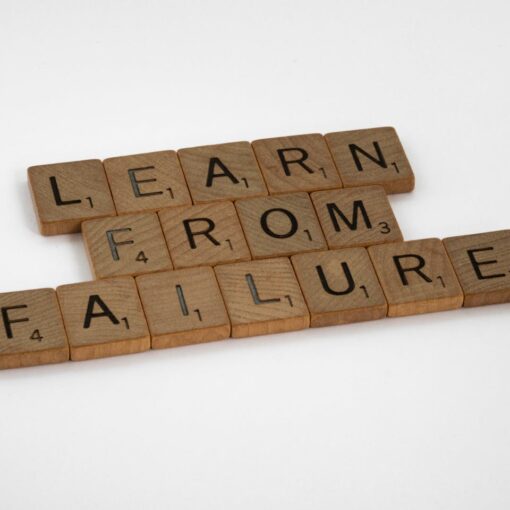Critical thinking and logic are essential skills that help us navigate the complexities of modern life. By enhancing these abilities, individuals can make more informed decisions, solve problems more effectively, and approach challenges with a rational mindset.

How can you improve these vital skills? TED Talks offer a wealth of knowledge from experts in various fields, sharing their insights and strategies. These talks are a powerful resource for anyone looking to expand their thinking and embrace new ways of understanding the world.
1) The Danger of a Single Story by Chimamanda Ngozi Adichie

Chimamanda Ngozi Adichie highlights the risks of hearing a single narrative about a person, place, or culture. She shares her own experiences growing up in Nigeria and learning about the world through limited perspectives.
Adichie explains how single stories can create stereotypes. These are not necessarily false, but incomplete. They make one story become the only story and limit our understanding.
She uses personal anecdotes to illustrate her points. For example, she talks about discovering American and British books as a child and realizing that stories could be more diverse.
Adichie warns that single stories rob people of dignity. They emphasize how we are different rather than how we are similar. This TED Talk encourages viewers to seek out multiple perspectives.
She emphasizes the power of stories to shape our perceptions. By exposing ourselves to many stories, we can broaden our worldview and appreciate the richness of different cultures.
Adichie’s talk is a compelling call to question the narratives we encounter. It is a reminder to look beyond a single perspective for a fuller, more inclusive picture.
Watch the full talk here.
2) Your Brain is Plastic by Lara Boyd

Lara Boyd’s TED Talk, “Your Brain is Plastic,” highlights the concept of neuroplasticity. This idea suggests that our brains can change throughout our lives, not just during childhood. Boyd debunks myths, showing that the brain remains flexible and adaptable.
Boyd is a professor and neuroscientist at the University of British Columbia. Her research focuses on how the brain can reorganize itself. This ability is crucial for learning and recovery from injuries.
In her talk at TEDxVancouver, Boyd explains how new experiences and learning activities can shape our brain’s structure. She emphasizes that engaging in diverse activities can lead to significant changes in our brain’s wiring.
Boyd also discusses how factors like stress can impact our brain’s ability to change. Even though stress can impair learning, we can counter this by participating in positive activities. Boyd’s insights are based on her extensive research in neurobiology and motor learning.
To delve deeper into her findings, you can watch the full TED talk here. The talk provides a clear understanding of how our brain’s plasticity offers endless possibilities for growth and adaptation.
3) The Power of Believing That You Can Improve by Carol Dweck
Carol Dweck explores the concept of a “growth mindset” in her talk The Power of Believing That You Can Improve. She believes that people can enhance their ability to learn and solve problems by changing their mindset.
Dweck explains that having a growth mindset means seeing challenges as opportunities to improve. She contrasts this with a fixed mindset, where people believe their abilities are static and unchangeable.
In her research, Dweck found that students praised for effort rather than intelligence developed a stronger willingness to face challenges. This mindset helped them persist longer and learn more.
She introduces the idea of “Not Yet” as a way to reframe failure. Instead of thinking “I failed,” students can think, “I’m not there yet,” which encourages continued effort and learning.
By adopting a growth mindset, Dweck argues that anyone can improve their skills and intelligence over time. This talk provides a clear and practical approach to developing resilience and a love for learning.
You can watch Dweck’s TED Talk here.
4) How Great Leaders Inspire Action by Simon Sinek
Simon Sinek’s TED Talk, How Great Leaders Inspire Action, delves into the core of what makes leaders effective and motivating. He introduces the concept of the “Golden Circle,” which focuses on understanding why leaders do what they do.
Sinek uses examples like Apple and Martin Luther King Jr. to illustrate his points. He argues that great leaders inspire action by starting with “why” instead of “what” or “how.” This approach helps to create a sense of purpose and direction.
In his talk, Sinek explains that people are drawn to leaders who communicate their beliefs clearly. This is why Apple has a loyal customer base and why Martin Luther King Jr.’s message resonated with so many. The focus on “why” helps to build trust and loyalty.
Watch the TED Talk to see how Sinek outlines his ideas in a straightforward and compelling manner. He emphasizes that anyone can inspire others by aligning their actions with their core beliefs.
Simon Sinek’s model is simple yet powerful, making his talk a must-watch for anyone interested in leadership and motivation. His insights are clear and practical, offering valuable lessons for everyday leadership situations.
5) Questioning the Universe by Stephen Hawking
Stephen Hawking’s TED talk, “Questioning the Universe,” dives into fundamental questions about the cosmos. He examines how the universe began, how life originated, and whether we are alone. These questions have fascinated humanity for centuries.
He explains that until the 1920s, people thought the universe was static. However, scientists later discovered that galaxies are moving away from us. This discovery suggested that the universe was once very close together before expanding, hinting at the concept of the Big Bang.
Hawking also addresses the laws of physics. He discusses how they govern the universe and the importance of understanding these laws in answering the big questions. The talk emphasizes the need for curiosity and the pursuit of knowledge.
For those who wish to explore these concepts further, watching the TED talk on Questioning the Universe offers a deeper insight. The talk is both informative and thought-provoking, providing a clear explanation of complex topics.
6) The Surprising Habits of Original Thinkers by Adam Grant
Adam Grant, an organizational psychologist, explores what makes some people more original than others in his TED Talk. He calls these individuals “originals” — those who bring new ideas into the world and take action to implement them.
Grant identifies three key habits that set originals apart. First, they embrace failure. According to Grant, the most original thinkers fail often because they try many things. They are not discouraged by setbacks but use them as learning opportunities.
Second, originals are not necessarily the fastest to act. Grant notes that these thinkers often take their time, allowing ideas to incubate. This procrastination can lead to more creative and well-thought-out solutions.
Lastly, originals doubt the default. They question the status quo and are open to unconventional approaches. This mindset enables them to see potential where others might not.
Grant uses compelling examples and engaging storytelling to illustrate these points, offering a fresh perspective on creativity and innovation. His talk encourages viewers to reconsider their views on failure, procrastination, and questioning norms.
For more insights, watch Adam Grant’s TED Talk and discover how these habits can foster creativity and original thinking.
7) Logic Will Save Us, But Only If We Try by Tim Urban
Tim Urban is known for his engaging talks that blend humor with deep insights. His TED Talk, “Logic Will Save Us, But Only If We Try,” explores the role of logic in decision-making and everyday life.
Urban explains how humans often fall prey to irrational thinking. He uses simple examples to show how logical thought processes can lead to better decisions.
He emphasizes that logic isn’t just for mathematicians or scientists. Everyone can benefit from understanding logical principles. According to Urban, applying logic can solve many personal and societal problems.
Urban is also known for his blog, Wait But Why, where he writes about complex topics in an accessible way. His TED Talk encourages people to take small steps toward integrating logic into their lives. For more details, you can watch Tim Urban’s TED Talk online.
8) The Art of Choosing by Sheena Iyengar
Sheena Iyengar explores how people make choices and the emotions associated with these decisions. In her talk, she dives into both simple choices, like Coke versus Pepsi, and more significant life decisions.
Iyengar emphasizes that having too many options can sometimes be overwhelming. She explains that while more choices might seem better, they can often lead to decision fatigue and dissatisfaction.
Her research reveals surprising attitudes about human decision-making. She found that people from different cultures and backgrounds view choices differently. For instance, while some value having many options, others prefer fewer choices to avoid feeling overwhelmed.
Iyengar’s insights offer a deeper understanding of the psychology behind decision-making. She shares stories and examples from her research that illustrate these concepts vividly.
For a detailed account of her findings, you can watch her talk on YouTube or read the full transcript.
9) Why We Make Bad Decisions by Dan Gilbert
Dan Gilbert explores the reasons behind poor decision-making in his TED Talk, Why We Make Bad Decisions. He explains how our brains are wired to make errors that impact our choices.
He presents research and data from experiments on happiness, revealing surprising results. Gilbert highlights common mistakes, such as misjudging probabilities and being influenced by immediate emotions.
Gilbert discusses how people often mispredict their future feelings, leading to decisions that don’t bring long-term happiness. For example, they might overvalue short-term rewards and undervalue long-term benefits.
Through his talk, Gilbert aims to help listeners understand the psychological traps that lead to bad decisions. He encourages people to think more critically about their choices.
Gilbert’s insights are useful for anyone looking to improve their decision-making skills. By being aware of these cognitive biases, individuals can make more informed and rational decisions in various aspects of life.
10) Critical Thinking & Problem-Solving by TED-Ed
TED-Ed provides numerous lessons focused on enhancing critical thinking and problem-solving skills. These lessons aim to equip students and educators with practical tools to tackle everyday challenges.
One example of such a lesson is the 5 tips to improve your critical thinking by Samantha Agoos. The lesson outlines a structured 5-step process to navigate complex problems.
TED-Ed further explores these themes through captivating animations and interactive elements. This approach ensures that learners remain engaged while absorbing the material. The focus is on making critical thinking accessible and applicable in various scenarios.
In addition to individual lessons, TED-Ed allows users to create customized content. This flexibility makes it easy for educators to tailor lessons to the specific needs of their students. Explore more lessons on critical thinking through TED-Ed’s dedicated page.
These resources are designed to foster an environment where critical thinking is not just an abstract concept but a practical skill. TED-Ed’s offerings make it clear that effective problem-solving requires a combination of logic, creativity, and persistence.
The Importance of Critical Thinking
Critical thinking involves analyzing information carefully and making informed decisions. It helps solve problems, avoid manipulation, and improve creativity.
Benefits of Critical Thinking
Critical thinking helps make better decisions. By questioning and evaluating information, people can avoid mistakes and bias. It leads to more accurate conclusions and solutions.
Improved problem-solving skills emerge from this approach. People can break down complex problems into manageable parts and find effective solutions.
Critical thinking also aids creativity. By considering multiple perspectives, individuals can come up with innovative ideas and approaches.
It promotes independence. Rather than accepting information at face value, critical thinkers analyze and form their own opinions, leading to more autonomy in thought and action.
Developing Critical Thinking Skills
To develop critical thinking skills, practice is key. Engaging in activities that require reasoning and evaluation helps build these skills over time.
Asking questions is fundamental. By challenging assumptions and seeking more information, one sharpens their analytical abilities.
Engaging in debates and discussions with others offers a practical way to develop critical thinking. It exposes individuals to different viewpoints and tests their reasoning.
Another method is using the Socratic Method, where asking and answering questions stimulates deeper thinking. Erick Wilberding’s lesson on this method highlights its effectiveness.
Consistent practice in everyday decisions aids improvement. From small choices to major decisions, applying critical thinking builds a strong foundation.
Understanding Logic
Logic is a fundamental part of critical thinking. It involves understanding the principles of sound reasoning and being aware of common pitfalls.
Basics of Logical Reasoning
Logical reasoning is the process of using structured principles to reach a conclusion. It can be divided into two main types: deductive and inductive reasoning.
Deductive reasoning starts with a general statement or hypothesis and examines the possibilities to reach a specific, logical conclusion. For example, if all humans are mortal and Socrates is a human, then Socrates must be mortal.
Inductive reasoning makes broad generalizations from specific observations. For instance, if you see hundreds of swans and they are all white, you might conclude all swans are white. While this method can be powerful, it is not always foolproof as it relies on limited observations.
Understanding logical reasoning helps in creating clear arguments and analyzing the arguments of others critically.
Common Logical Fallacies
Logical fallacies are errors in reasoning that undermine the logic of an argument. Here are a few common ones:
- Ad Hominem: Attacking the person making the argument rather than the argument itself.
- Straw Man: Misrepresenting someone’s argument to make it easier to attack.
- Appeal to Ignorance: Assuming a claim is true because it has not been proven false.
- False Dilemma: Presenting two options as the only possibilities, when others exist.
- Slippery Slope: Arguing that a small first step will inevitably lead to a chain of related events resulting in some significant impact, often negative.
Being able to identify these fallacies can help in maintaining the integrity of discussions and debates. For more examples, explore the logical reasoning section.





